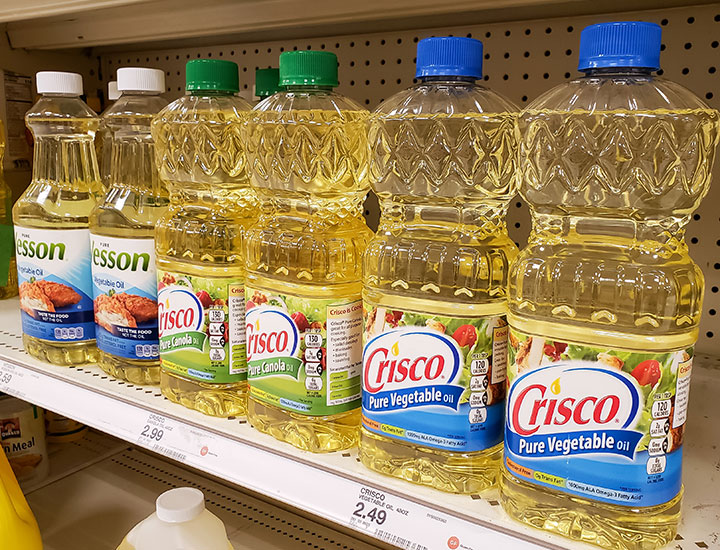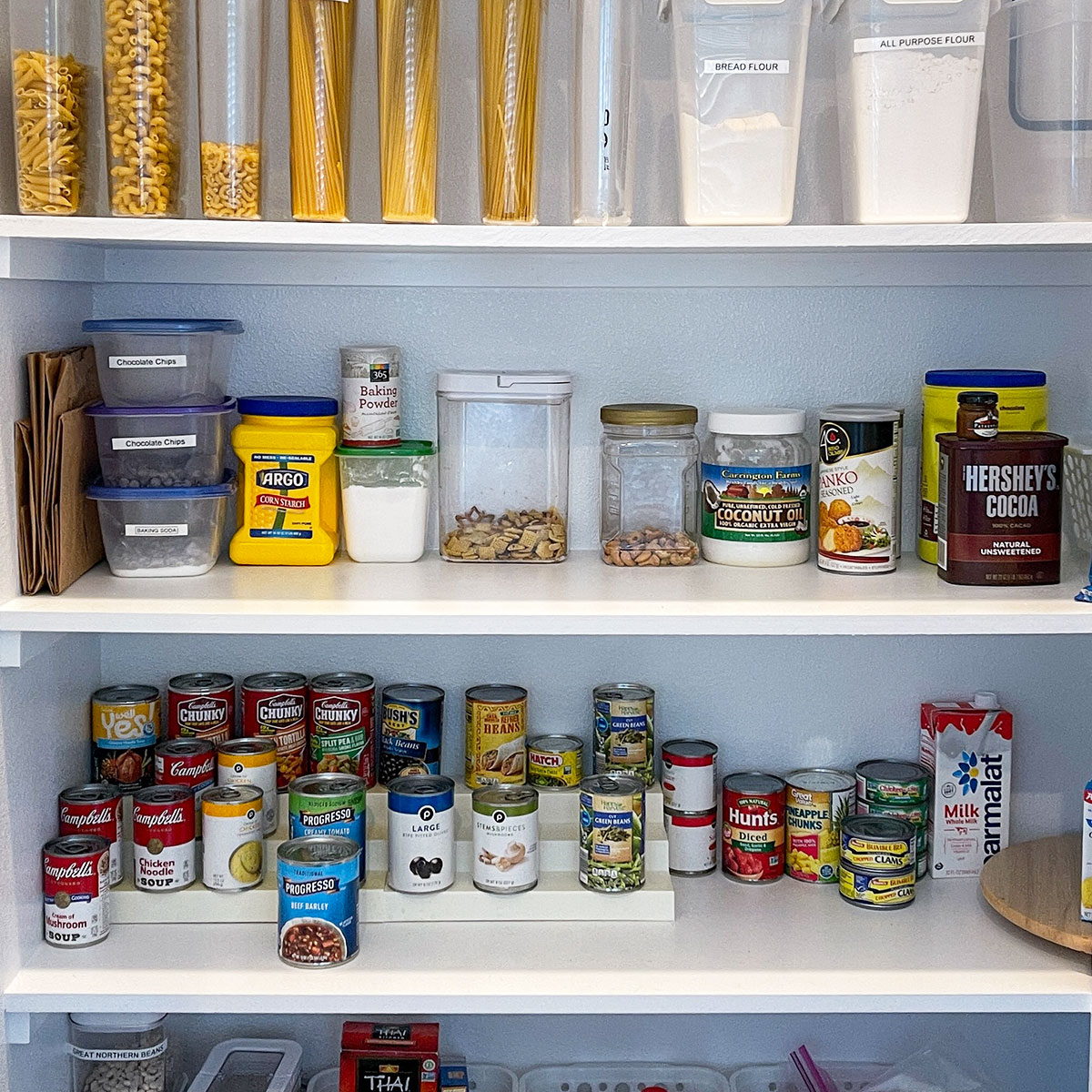The first place many of us turn to when we’re hungry is the pantry. Whether we’re in the mood for a quick snack or to start cooking, the pantry has it all. But there is one processed pantry ingredient that may be affecting your weight loss plans. It’s something we use every day and it’s in most of our foods: vegetable oils.
Vegetable oils include soybean oil, corn oil, sunflower oil, safflower oil, canola oil, peanut oil, rice bran oil, grape seed oil, and cottonseed oil. Vegetable oil is fairly new to the American diet. It was invented by a German scientist in 1907 as a replacement for animal fats. Today, vegetable oils make up 20% of Americans’ calories and have made their way into almost every food we eat. Although they’re mainly used for cooking and baking purposes, vegetable oils are in everything from oat milk, tortilla chips, margarine, and mayonnaise to Chipotle’s rice, Subway’s bread, and Domino’s pizza crust.
To learn more about the health effects of vegetable oils, we spoke with ASYSTEM’s registered nutritionist, Jay Cowin. Read on for more information about vegetable oil and some healthy substitutes you can use for cooking in the future.


Vegetable oil
Most vegetable oils are actually extracted from grains and seeds. But the most popular vegetable oil type is soybean oil. According to the U.S. Department of Agriculture, soybean oil is the most widely consumed cooking oil in America. From 1909 to 1999, the per capita consumption of vegetable oils in America and across the globe increased by over 1000 percent. Wow!
But why are vegetable oils unhealthy? Vegetable oils are high in omega-6 fatty acids and doctors believe that eating too many omega-6 foods can lead to increased inflammation in the body leading to weight gain.
"The University of California says that it is not healthy to use vegetable oil because it is 80% fat and 20% protein, which means it's mostly made of saturated fatty acids (bad)," Cowin says. "It also contains only trace amounts of nutrients, meaning cooking with this oil doesn't provide much benefit to your body or diet compared to other oils that are higher in unsaturated fats like olive oil."
But vegetable oils’ detrimental effects even go beyond your waistline. Studies have linked the consumption of highly-processed vegetable oil to obesity, diabetes, insulin resistance, and more.
Not only are vegetable oils bad for you but they’re also harmful to the environment. Worldwide, vegetable oils are a leading driver of deforestation and climate change. Production of vegetable oils emits more greenhouse gases per kilogram than any other major crop and they account for up to 30% of global agricultural land use. All that and they provide less than 0.01% of the world’s nutrients. Yikes!

Healthy substitutes
Ok, so vegetable oils stall weight loss. What can we use instead? Cowin has some ideas, "The American Journal of Clinical Nutrition says that it is not recommended to use vegetable oil for cooking because it does increase LDL cholesterol and is not as heart-healthy as olive or canola oil," she says.
Olive oil
Extra virgin olive oil tends to be a much healthier option than most vegetable oils. Olive oil is rich in healthy monounsaturated fats, contains large amounts of antioxidants, and has strong anti-inflammatory properties. It’s also one of the key components of the Mediterranean diet which is highly recommended by doctors and dietitians for a healthy heart.
Canola oil
Although it must be handled and processed correctly, canola oil is a safe and healthy form of fat that will reduce blood LDL cholesterol levels and heart disease risk compared to carbohydrates or saturated fats such as those found in vegetable oils or butter. Just remember, healthy doses!


























